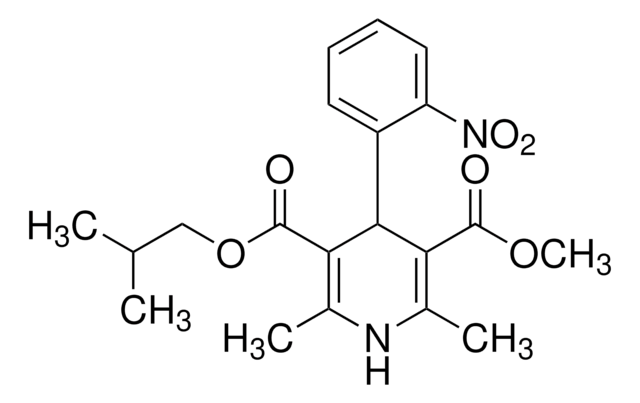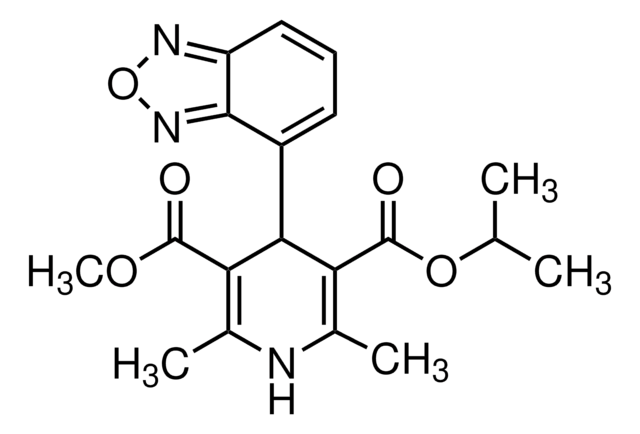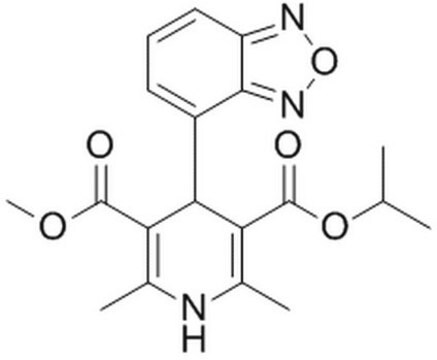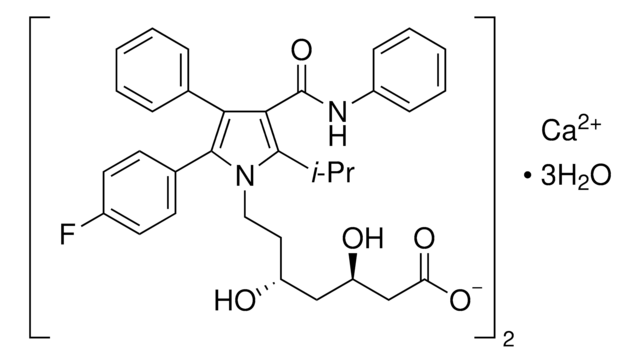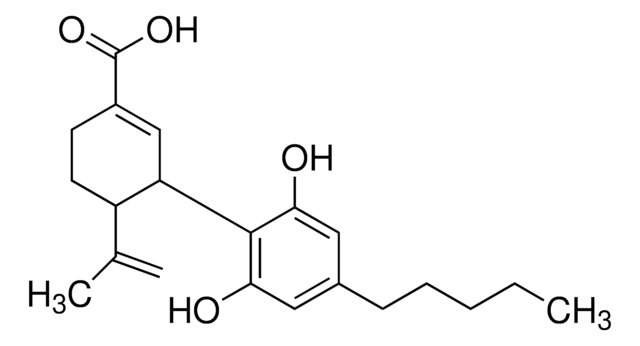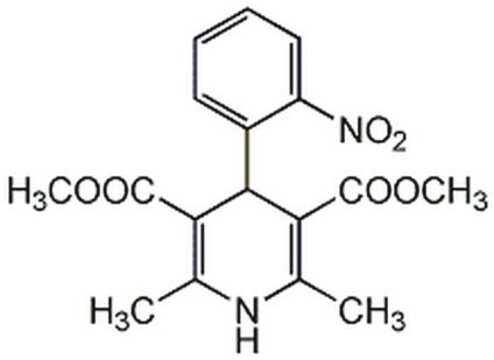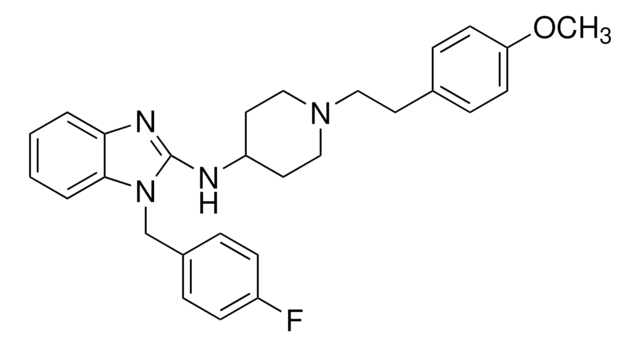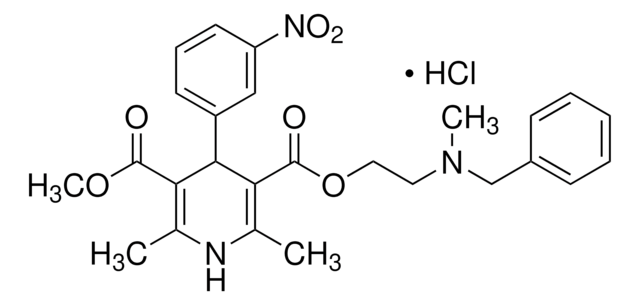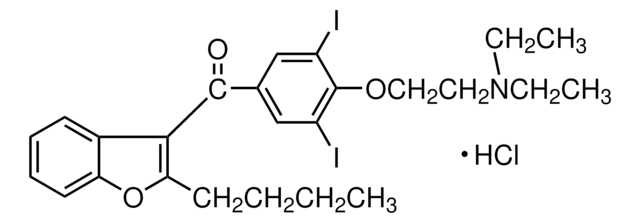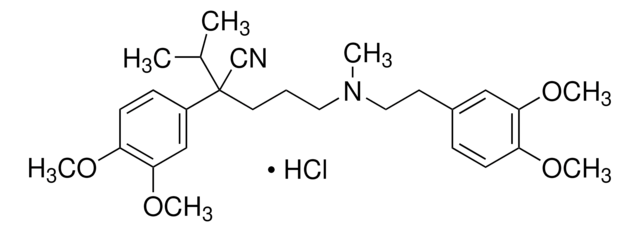I6658
Isradipine
≥98% (HPLC), solid
Synonym(s):
4-(4-Benzofurazanyl)-1,-4-dihydro-2,6-dimethyl-3,5-pyridinedicarboxylic acid methyl 1-methylethyl ester
About This Item
Recommended Products
description
Store under nitrogen
Quality Level
Assay
≥98% (HPLC)
form
solid
color
yellow
solubility
DMSO: >10 mg/mL
originator
Novartis
storage temp.
2-8°C
SMILES string
COC(=O)C1=C(C)NC(C)=C(C1c2cccc3nonc23)C(=O)OC(C)C
InChI
1S/C19H21N3O5/c1-9(2)26-19(24)15-11(4)20-10(3)14(18(23)25-5)16(15)12-7-6-8-13-17(12)22-27-21-13/h6-9,16,20H,1-5H3
InChI key
HMJIYCCIJYRONP-UHFFFAOYSA-N
Gene Information
human ... CACNA1C(775) , CACNA1D(776) , CACNA1F(778) , CACNA1S(779) , CACNA2D1(781)
Looking for similar products? Visit Product Comparison Guide
Application
Biochem/physiol Actions
Features and Benefits
Storage Class Code
11 - Combustible Solids
WGK
WGK 3
Flash Point(F)
Not applicable
Flash Point(C)
Not applicable
Personal Protective Equipment
Certificates of Analysis (COA)
Search for Certificates of Analysis (COA) by entering the products Lot/Batch Number. Lot and Batch Numbers can be found on a product’s label following the words ‘Lot’ or ‘Batch’.
Already Own This Product?
Find documentation for the products that you have recently purchased in the Document Library.
Customers Also Viewed
Our team of scientists has experience in all areas of research including Life Science, Material Science, Chemical Synthesis, Chromatography, Analytical and many others.
Contact Technical Service